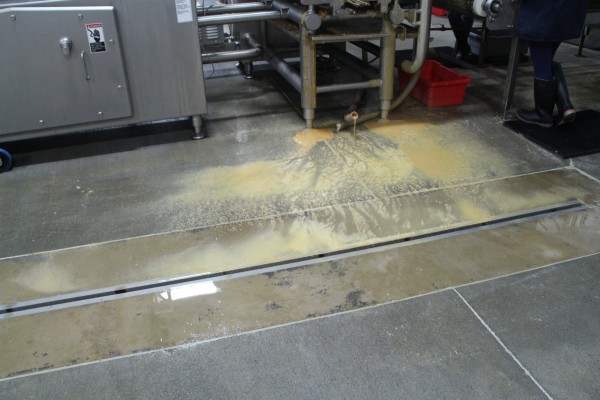Most food processing facility managers would agree, inspections can easily become a source of stress and concern. Just the thought of being evaluated for compliance and certification purposes is often a source of fear and anxiety. However, feeling stressed leading up to an inspection can have a big impact on your ability to communicate effectively with your inspector.
If you follow the instinct to fear your inspector and give them power over your own authority, you are missing out on what could be a great growth opportunity for your facility. Knowing the right way to work with inspectors will help lower your stress levels and turn inspection time into a proactive experience.
We spoke to several industry experts and gathered their suggestions for making inspections go smoothly for both you and the inspector. Take a look at these helpful tips and learn how to incorporate them into your next audit.
View Your Inspector as a Resource Instead of a Threat
According to our industry experts, inspectors generally do not enter a facility expecting everything to be 100% compliant. Inspectors are there to get a holistic view of how your facility works, review your processes and point out areas of concern.
Adopt the viewpoint that inspections are not “tests,” they are check-ups to ensure everything is going well. That’s why you should approach the inspector as a resource. If you show a willingness to communicate and listen to feedback, they will provide you with information about what you’re doing right and how you can improve problem areas.
And following their advice will ensure you are even better prepared for the next inspection.
Prepare for Potential Questions

Being considered a knowledgeable and trusted source for your facility helps foster a good relationship with your inspector. You are the subject matter expert when it comes to your own facility and the inspector is depending on you to help them understand your processes, so they can discover potential risks.
Review the entire workflow of your facility and perform your own self inspection. Understanding the entire production process prepares you for potential questions and removes the possibility of feeling like you’re on the defensive when the inspector asks for clarification or more information.
Understand the Intent and Purpose of Their Requests
When inspectors ask you questions specific to your workflow and processes, it’s important to remember they are not trying to be overly critical of you or the facility. They simply want to understand the whole picture. It’s their responsibility to ask the right questions so they can determine if there is an issue and, if so, provide you with information to fix the issue so you stay within regulations.
Most importantly, if you are questioned about a process or staying in compliance, don’t be alarmed. If you are confused or unsure about a question, industry experts recommend asking your inspector to see the legislation or standard they are referencing. This helps provide clarity and creates the opportunity to talk further about the subject.
Make Sure You’re on the Same Page
While inspectors are extremely knowledgeable about standards and regulations, they are not the experts of your specific facility—you are. This is especially important when it comes to how the inspector understands processes that either may not be completely familiar to them or may have multiple interpretations.
When in doubt, ask your inspector how they understand a process to work or how they interpret specific wording. This is a great opportunity to compare viewpoints and show the inspector how you carry out certain practices to meet requirements.
Regulations are subjective when it comes to facility inspections. Inspectors are allowed to interpret the rules in their own way, and different inspectors focus on different regulations when touring a facility. By asking how they are interpreting a regulation, you are opening the door to a productive conversation.
This is your chance to educate one another and gain common ground during the inspection.
Use Your Inspection as a Growth Opportunity
Establishing a positive rapport with your inspector should help you collect a lot of good information that will prepare you for your next inspection. While each inspector may have a different approach or area of concentration, they will all appreciate a being part of a collaborative and proactive evaluation—it’s a win/win for everyone involved!
Questions about how your drainage system would stand up an inspection? Slot Drain is designed to meet all the drainage requirements for food and beverage facilities. Get prepared for your next sanitation audit and contact a Slot Drain Expert for more information on their state-of-the-art draining systems.





